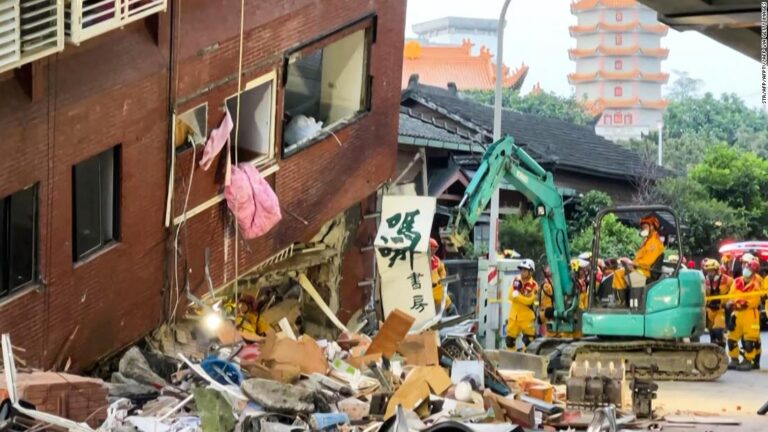The world’s biggest chipmaker is working to resume operations following the massive earthquake that struck Taiwan Wednesday — a welcome sign for makers of products ranging from iPhones and computers to cars and washing machines that rely on advanced semiconductors.
A 7.4 magnitude earthquake struck the island’s east coast Wednesday morning, the strongest in 25 years, killing nine and causing landslides and collapsed structures.
Taiwan Semiconductor Manufacturing Company, the leading chipmaker also known as TSMC, operates largely on the opposite side of the island, although the company said its facilities did experience some shaking.
TSMC temporarily evacuated some manufacturing plants following the quake but said later Wednesday that staff were safe and had returned to their workplaces.
“A small number of tools were damaged at certain facilities, partially impacting their operations. However, there is no damage to our critical tools,” TSMC said in a statement late Wednesday.
While Wednesday’s earthquake appears unlikely to have any long-term implications for the semiconductor supply chain, it gave a stark reminder of the risks of concentrating crucial microchip manufacturing on an island that is both prone to earthquakes and a hotspot for geopolitical tensions.
Chipmakers and governments, including the US government, have in recent years invested billions in efforts to diversify chip production, but many experts worry that process is not happening fast enough.
Keep reading about the risks to the vital industry.


